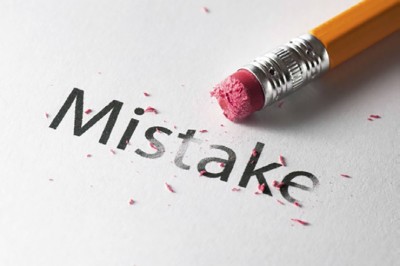
The Kaf HaChaim addresses the case of a person who had in front of him two foods – one requiring "Ha’etz," and another requiring "Ha’adama" – and he picked up the food requiring "Ha’etz" and mistakenly recited "Ha’adama." Immediately recognizing his mistake, he right away corrected himself, and recited "Ha’etz," such that he ended up reciting, "Baruch Ata Hashem Elokenu Melech Ha’olam Boreh Peri Ha’adama, Boreh Peri Ha’etz." For example, he was going to eat both a piece of apple and a piece of melon, and he picked up the piece of apple and mistakenly recited "Ha’adama," after which he immediately corrected himself and recited "Ha’etz." The Kaf HaChaim writes that in such a case, the individual does not then recite a Bracha over the melon. Since he recited both "Boreh Peri Ha’adama" and "Boreh Peri Ha’etz," and he recited both Brachot with the intention of eating both apple and melon, this "double Bracha suffices for both, and he does not then need to recite "Ha’adama" over the melon. Even though the first Bracha was recited by mistake, it is nevertheless valid with respect to the melon. Chacham Bension Abba Shaul cites the Kaf HaChaim’s ruling and raises a number of possible objections. In his conclusion, however, Chacham Bension concurs with the Kaf HaChaim’s position, though he recommends that a person in this case should, before eating the melon, take a food or drink requiring "She’hakol" and have in mind for the Bracha of "She’ha’kol" to cover the melon. This way, he avoids all uncertainty and can then eat the melon without reciting "Ha’adama," even without relying on the Kaf HaChaim’s ruling.
By Rabbi Eli Mansour
An Incorrect Bracha That Was Immediately Corrected
Typography
- Smaller Small Medium Big Bigger
- Default Helvetica Segoe Georgia Times
- Reading Mode



